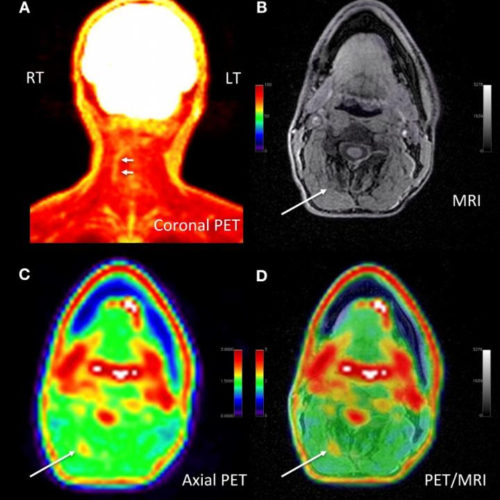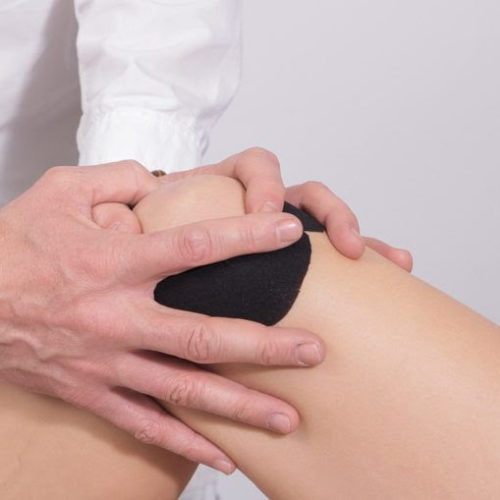Two new evidence reviews related to acute musculoskeletal injuries like strains and sprains suggest other forms of treatments are as effective as opioids and have less risk of harms to patients. The details of the systematic reviews and meta-analyses, led by McMaster, were published August 17 in the Annals of Internal Medicine. The first article...
Tag: <span>musculoskeletal</span>
BU study: A quarter of arthritis cases linked to excess weight
eight loss from young adulthood to midlife was associated with substantially reduced risk of developing arthritis BOSTON UNIVERSITY SCHOOL OF MEDICINE A new Boston University School of Public Health (BUSPH) study shows that weight loss between early adulthood and midlife lowers arthritis risk, and found no evidence of any persistent risk of arthritis for people...
Study shows genetic markers are useful in predicting osteoporotic fracture risk
Findings hold potential for cost savings while improving efficiency of screening HEBREW SENIORLIFE HINDA AND ARTHUR MARCUS INSTITUTE FOR AGING RESEARCH A new study shows that genetic pre-screening could reduce the number of screening tests needed to identify individuals at risk for osteoporotic fractures. Douglas P. Kiel, M.D., M.P.H.,director of the Musculoskeletal Research Center in...
New PET/MRI approach pinpoints chronic pain location, alters management
SOCIETY OF NUCLEAR MEDICINE AND MOLECULAR IMAGING ADULT MALE WITH DECADES OF RIGHT NECK PAIN, DISCOMFORT AND TIGHTENING FOLLOWING BIRTH INJURY. THE PATIENT HAD FAILED MULTIPLE STANDARD THERAPEUTIC MANEUVERS BEFORE PRESENTING FOR 18F-FDG PET/MR IMAGING. IMAGES SHOWS… view more CREDIT: CIPRIANO, ET AL., STANFORD UNIVERSITY, CA. A new molecular imaging approach utilizing 18F-FDG positron emission...
Nuclear Softening Allows Cells to Move Into Dense Tissue, Encouraging Injury Repair
Using an enzyme inhibitor in meniscus cells, a Penn team was able to soften their nucleus and promote access to previously impassible areas. By softening a cell’s nucleus so that it can squeeze its way through dense connective tissues, a group of researchers believes they’ve demonstrated a new way to help the body efficiently repair...
Nuclear softening allows cells to move into dense tissue, encouraging injury repair
by Perelman School of Medicine at the University of Pennsylvania By softening a cell’s nucleus so that it can squeeze its way through dense connective tissues, a group of researchers believe they’ve demonstrated a new way to help the body efficiently repair injuries. The team of researchers from the University of Pennsylvania tested this theory...
HOW TO WORK FROM HOME WITHOUT HURTING YOUR BACK
While makeshift workstations may meet basic needs as so many people work from home due to the pandemic, most fail to provide sound ergonomic design, according to researcher April Chambers. People are creating makeshift workspaces from their dining room tables, kitchen counters, living room couches, or folding tables and chairs. As a result, Chambers, an...
EULAR: Early and intensive treatment of rheumatoid arthritis reduces fatigue
Better quality of life for people with rheumatic and musculoskeletal diseases EUROPEAN LEAGUE AGAINST RHEUMATISM Kilchberg/Switzerland: Disease-related, profound fatigue impairs the quality of life of many people with rheumatic and musculoskeletal diseases. A Belgian study (1) has now concluded that early intensive treatment combining methotrexate with a bridging scheme of prednisone can reduce the onerous...
Study recommends new ways to treat musculoskeletal pain
by University of Western Australia A new study led by The University of Western Australia has identified 11 recommendations to help health professionals and patients better manage musculoskeletal problems. The study comes after the team found many musculoskeletalproblems were not being managed effectively. Musculoskeletal conditions – including back and neck pain, osteoarthritis and shoulder pain – affect nearly 7 million Australians with around one in five visits to the doctor due...
New toolkit to assess musculoskeletal health in older people
A new way to assess the impact of normal ageing on bones, joints and muscles has been proposed that could provide a benchmark for how well older people are able to keep moving. Credit: Public Domain The composition of the body changes as we get older, as muscle strength and bone density decline. But the...
- 1
- 2



